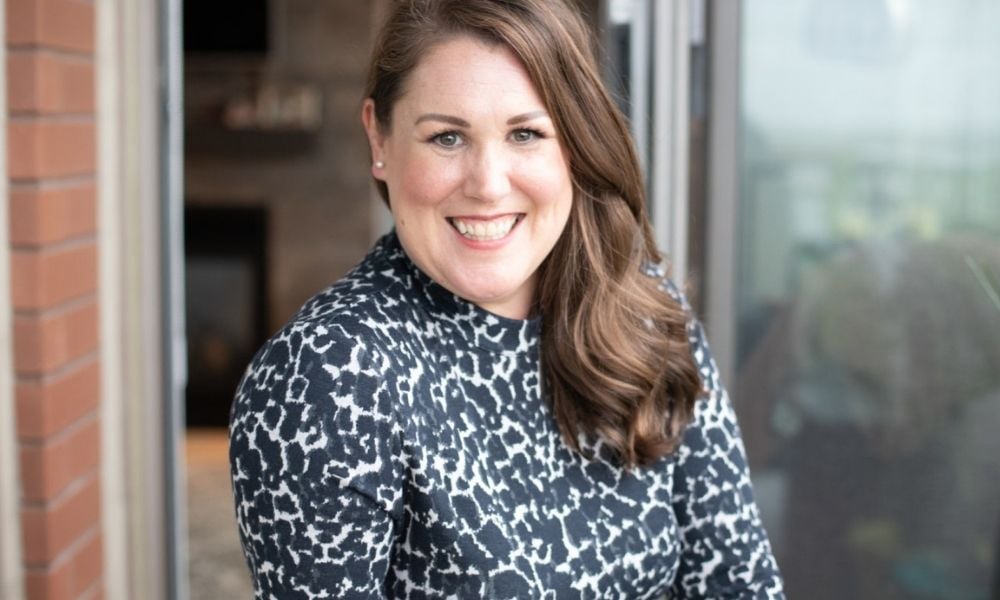Portfolio manager reveals her Valentine's Day advice to clients in a relationship

We’ve all seen the statistics that money can be one of the main conflicts in a relationship. But, from where she’s sitting and advising women, Charlotte Paul of Victoria, B.C. says it’s the investment side that’s the big eye-opener for those whose relationship ends.
“I’m not dealing with day-to-day finances, which is what I think gets the most conflict reaction,” Paul, an associate portfolio manager with Perspective Wealth Management at Raymond James told Wealth Professional. “I’m dealing with investments and investment accounts, and I think there’s less conflict with that.
“But, there’s a lot of eye-opening that happens when people separate or lose their partner. A lot of what I hear is ‘I didn’t know this’, or ‘I didn’t know that’, or ‘I assumed this was happening’. Or ‘I wish I knew this or that because we never really talked about it’, or ‘I let so and so do all this, and I never did that’. ‘I wish I’d been more involved’, or ‘I wish I understood it better’.
“I think the other thing, too, is that one person in the relationship takes care of the household budgeting while the other takes care of the investment side. When you separate, you now have to take care of all that stuff. So, I don’t know that regular conversations between couples about money are happening as often as they should.”
Paul said most couples seem to get into their financial routines and don’t regularly discuss money.
“They just sort of set it and forget it, which is fine until it’s not fine,” she said. “I think the big thing is not knowing where the accounts are that you have. Or, do you have a financial plan? That is a very key piece for most people so that, as a couple, you can really see, on paper, where you’re at and what you have, and where there may be gaps.
“So, having a solid financial plan in place is a great launching point to start having those regular discussions, not just about the household bills, but about your overall financial plan.”
Of course, once a relationship ends, each person should develop a financial plan. Women are also often more eager to be educated about their financial situation since it’s more worrisome then.
Given that it looks like many couples don’t have regular planning and finance discussions, and many don’t understand their cash flow, Paul made two recommendations.
First, she said a couple should start with a solid financial plan and work with a financial advisor, at least annually, but also whenever there’s a major life event. That could be when a young couple has a child or an older couple may be retiring. That should be done with both members of the couple as well as the advisor, so everyone is aware of the full picture.
Second, she recommended that couples start sitting down once a month to review their income, expenses, and monthly contributions to things like Registered Retirement Savings Plans and Tax-Free Savings Accounts.
“Just get in the habit of having those regular check-ins,” she said, urging advisors to raise this with their clients. “They don’t have to be long marathon meetings. You might almost make it a check list of what was going in and out this month. That will really help with understanding your cash flow.”
Paul said it’s hard to know whether talking – or not talking – about money leads to conflict, especially since people can have different money personalities. Some are spenders; some are savers.
“Obviously when you get a saver and a spender in a relationship, there’s going to be some conflict there,” she said. “But I do think having those regular discussions can help ease that conflict.”
It’s important to work out those logistics, but she’s also noticed that people who’ve come out of a relationship that’s ended – the separated or divorced more than the widowed – may practice different money habits when they re-partner. They may, for instance, choose to keep their money separate because of experiences they’ve had with previous partners.
Paul said women are also getting more involved on the investment side and want more education,
“Unfortunately, sometimes with the end of the relationship, it’s a wake-up call,” she said. “There’s a lot of change, and I think that’s a catalyst in a lot of ways. People realize ‘I need to understand this’ and ‘I need to take control of that’. A lot of women are doing their own investing, and taking control of that piece, but they still want a lot more education around it.”



